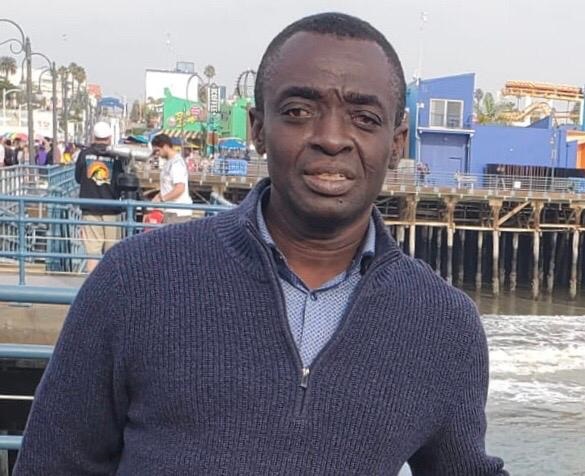
How prepared are we for an earthquake?
We ask how people are prepared ahead of an earthquake as the Ghana Geological Survey Authority (GGSA) has warned
Nana Yaa Nyarko
Businesswoman
Advertisement
Earthquakes or tremors cannot be predicted by scientists.
They are naturally occurring events that happen when two blocks of the earth suddenly slip past each other.
After confirming the three earth tremors that hit many parts of Accra on June 24, the Ghana Geological Survey Authority (GGSA) says it is an indication from earlier ones of an imminent earthquake.

The National Disaster Management Organisation (NADMO), responsible for creating awareness of disasters through intensive public education, has done little in educating the masses about the natural disaster.
The Ghana National Fire Service and other security services should be well equipped and ever ready to respond swiftly should it occur.
The GGSA should collaborate with the municipal, metropolitan, and district assemblies to prevent people from building in earthquake-prone areas.
Sowah Odai
Teacher
I don’t think the country is prepared for an earthquake.
I think we were lucky this time, but a severe one will be disastrous.

People who build at earthquake-prone areas should be advised on what to do as soon as possible.
Joseph Agyei Massel
Banker
Since we know the areas the earth tremors have been occurring, there is the need to discourage building in such zones.
As soon as possible, measures should be put in place to relocate those who already reside in these areas.

On the other hand, the State can help develop these areas through construction technology that will mitigate the effects should it happen.
Kofi Baah
Public Relations Officer
Given the fact that our last earthquake was in 1939, we’ve been reminded a number of times by earth tremors, hence the possibility for another earthquake.

I believe natural occurrences such as earthquakes are inevitable and unpreventable.
In view of this, we can only try and reduce its impact by putting in place measures like having our houses built with safer structures and avoiding building houses in earthquake-prone zones.
There is a need for regulations by the government to strictly enforce code on building materials to withstand any such occurrence.
Fafali Odzor
Nurse
There is lack of education on what to do in case an earthquake strikes.
There is little information on what to do when these happen.

People should be made to know how to move to safe locations in times of disasters.
The NADMO should be focused on preventive care instead of reactive care.
We need a lot of ambulances in case of emergency situations.
Going forward, the GGSA should be able to predict by using accurate machines to measure the possibility of an earthquake occurring, the time, day, and magnitude.
Joseph Kpormegbey
Journalist
Ghana is unprepared for earthquakes due to the way the nation approaches natural disasters.
They just come to us as a surprise and citizens have little or no knowledge of what exactly to do in the event of an earthquake or earth tremor.
The GGSA does little in warning the citizenry of some of these disasters.

There is, therefore, the need for enough education by all stakeholders, including the National Commission for Civic Education (NCCE), to help everyone with the basic tips on earthquakes when they occur.
Emmanuel Laryea Anyankor
Student
A lot of buildings in the city are poorly planned.
Developers close their eyes to the dangers and continue to build on the edges of mountains due to the unavailability of space in the city.
All these lead to landslides and earthquakes in the long term.

As a country, our level of preparedness is as bad as the corrupt officials who connive with people to build in some of these danger zones.
Kuffour Akosa
Entrepreneur
Geographical studies, coupled with earthquake experiences dating back to the colonial times, should have informed all of us, particularly policy makers.
The southern part of the country, precisely the Accra plains, is an earthquake-prone area because it sits on the fault line.
Playing the ostrich should not be the option, but rather formulating and implementing policies to avert or curtail its occurrence should be our topmost priority.

There is the need for a mass educational drive to sensitise the citizenry to the phenomenon, its impact, and how best the information so acquired can be applied in our daily activities, all to prevent its occurrence.
As long as the population keeps increasing, so do settlements, but that does not mean caution should be thrown to the wind.
The earth tremors that happened last week are a wake-up call for us to put our house in order against any eventuality.
Richroyal Yarboi-Ambrado
Entrepreneur
An earthquake is a natural occurrence that can happen unexpectedly and at any time.
Our preparedness for it would be based on the measures put in place by the government, in collaboration with the GGSA, earth scientists, NADMO, and other relevant stakeholders.

Additionally, the experts should educate the public about safety measures one needs to take when these natural disasters occur.




